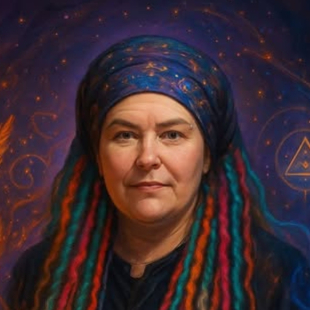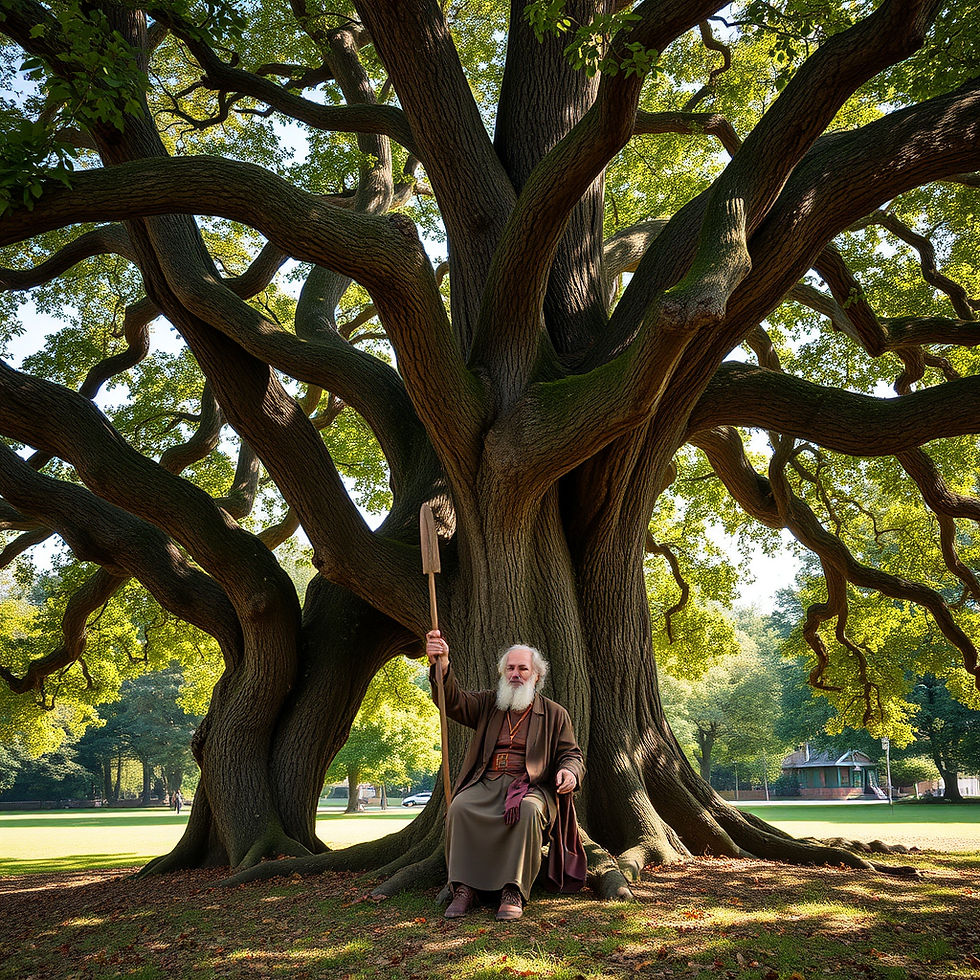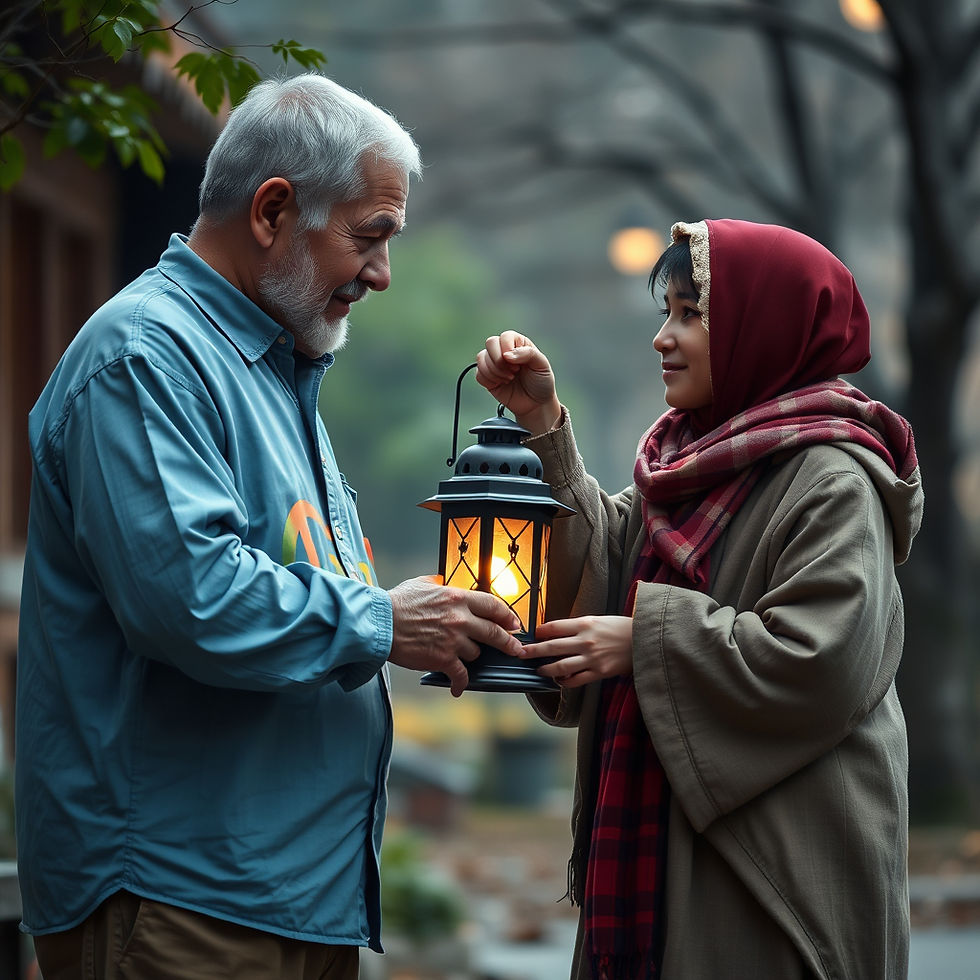From Student to Steward: Carrying the Torch of Transformation
- Gin

- Sep 16, 2025
- 4 min read
When I first entered grad school, I was convinced that the path forward was about accumulating degrees. I thought that the only way to be taken seriously — as a thinker, as a healer, as a leader — was to keep adding letters after my name.
So, at one point, I nearly talked myself into pursuing a PhD. Not because my soul was hungry for it, but because my ego wanted to prove that I was smart enough, worthy enough, legitimate enough.
And it was Chuck — my professor, advisor, and mentor — who stopped me.
He didn’t shame me. He didn’t mock my ambition. He simply asked the kind of piercing questions that made me realize I wasn’t chasing wisdom — I was chasing validation. And then he said something that felt like a benediction:
“You don’t need another degree to become who you already are.”
That was the moment I shifted from student to steward.
The Student Mindset
The student mindset is important — it’s where we all start. It’s about gathering tools, learning frameworks, stretching perspectives. It’s humble enough to admit, I don’t know yet.
But if we stay stuck in the student mindset, we can spend our whole lives waiting for permission to begin. Waiting for someone else to grant us legitimacy. Waiting for more training, more experience, more external validation.
It’s like staying in perpetual orientation week. You learn the map, but you never actually walk the land.

The Steward Mindset
A steward is different. A steward doesn’t just collect wisdom — a steward carries it, tends it, multiplies it, and shares it.
To be a steward means to realize: I am responsible for what I’ve been given. Not in a heavy, guilt-laden way. In a holy, joyful way.
Chuck taught me that stewardship isn’t about perfection — it’s about presence. It’s about showing up with what you have and offering it with integrity. A steward knows they don’t own the flame — they tend it so others can find their way by its light.
The Threshold Moment
That conversation with Chuck was a threshold. On one side of the door, I was a student — hungry, eager, but still proving myself. On the other side, I was a steward — someone finally ready to stop seeking permission and start living the work.
That’s what real teachers do: they don’t just load you with information, they hand you a torch. They tell you: It’s yours now. Carry it forward.
Psychological Insight: Adult Development
Robert Kegan’s model of adult development says that adulthood is not a static endpoint. Adults can keep evolving — from socialized mind (living by others’ expectations) to self-authoring mind (writing your own rules), to self-transforming mind (seeing the whole).
Chuck was nudging me from “socialized mind” — proving myself to institutions — into “self-authoring mind” — owning my story. That’s the move from student to steward.
Spiritual Insight: Stewardship as Sacred Task
In spiritual traditions, stewardship is everywhere. The Bible talks about stewardship of the earth. Buddhism teaches about right action and mindful responsibility. Indigenous wisdom reminds us that everything we have — from breath to water to land — is on loan from the generations that came before and must be returned with care to those who come after.
Stewardship is not ownership. It’s participation in a cycle larger than yourself.
That’s what Chuck was teaching me: stop trying to own knowledge. Start stewarding wisdom.
Integration: How to Step into Stewardship
If you’ve been living as a perpetual student — waiting for permission to begin — here are practices to help you shift into stewardship:
Name Your Torch
Ask yourself: What wisdom, gift, or fire has been handed to me? It might be resilience, compassion, a skill, or even a wound that taught you how to heal. Write it down.
Shift the Question
Instead of asking, “Do I know enough yet?” ask, “Am I willing to show up with what I already carry?” Stewardship begins the moment you stop disqualifying yourself.
Offer It Forward
Find one way this week to share your torch. Mentor someone. Write a reflection. Have a conversation where you name your truth. Stewardship is not about grand gestures — it’s about faithful offerings.

The Reality Check
Here’s the reality check: You will never feel fully “ready.” The student in you will always want one more class, one more certification, one more sign. But wisdom isn’t waiting on your degree. It’s waiting on your willingness.
Chuck taught me that. He pulled me back from chasing validation and redirected me into embodying vocation. He reminded me that the real work is not in proving yourself to the academy — it’s in stewarding your wisdom for the world.
So, if you’re waiting for the next credential to tell you you’re enough? Stop waiting. You are already standing at the threshold.
The torch has already been handed to you.
Now the question is: will you carry it?




Comments